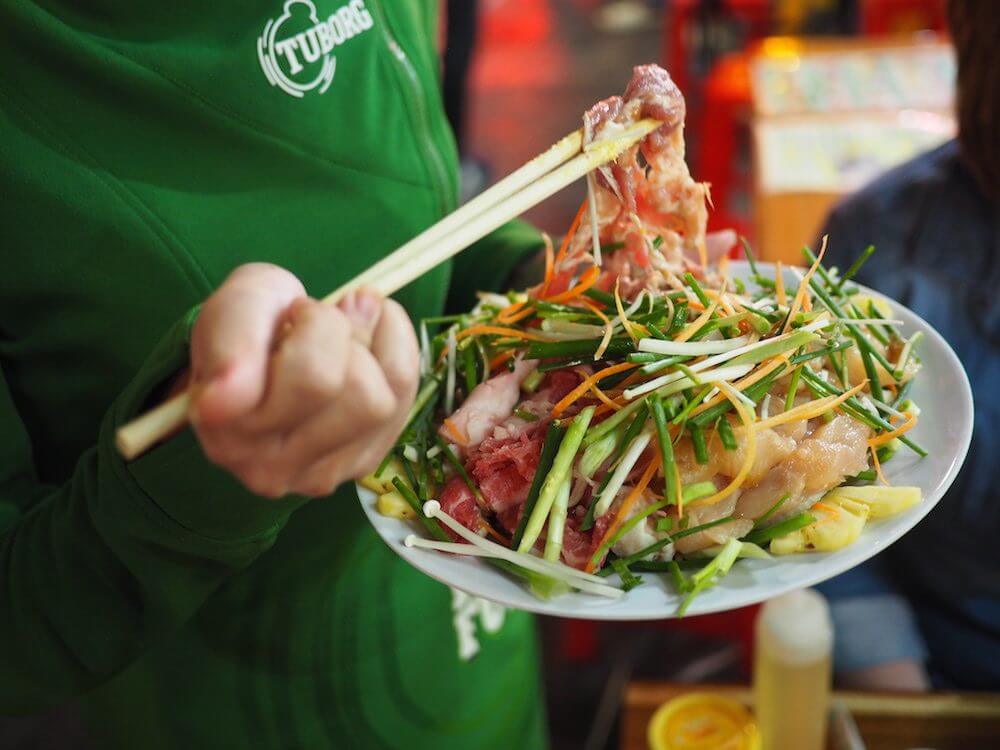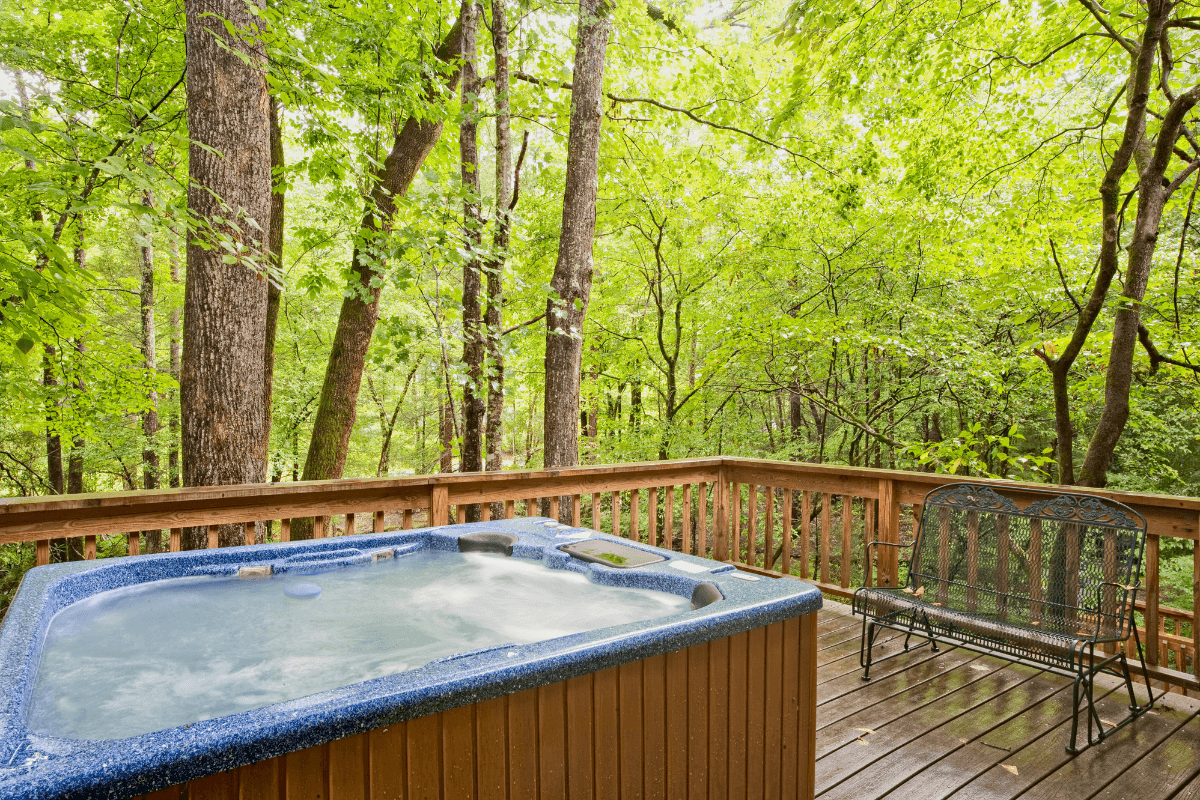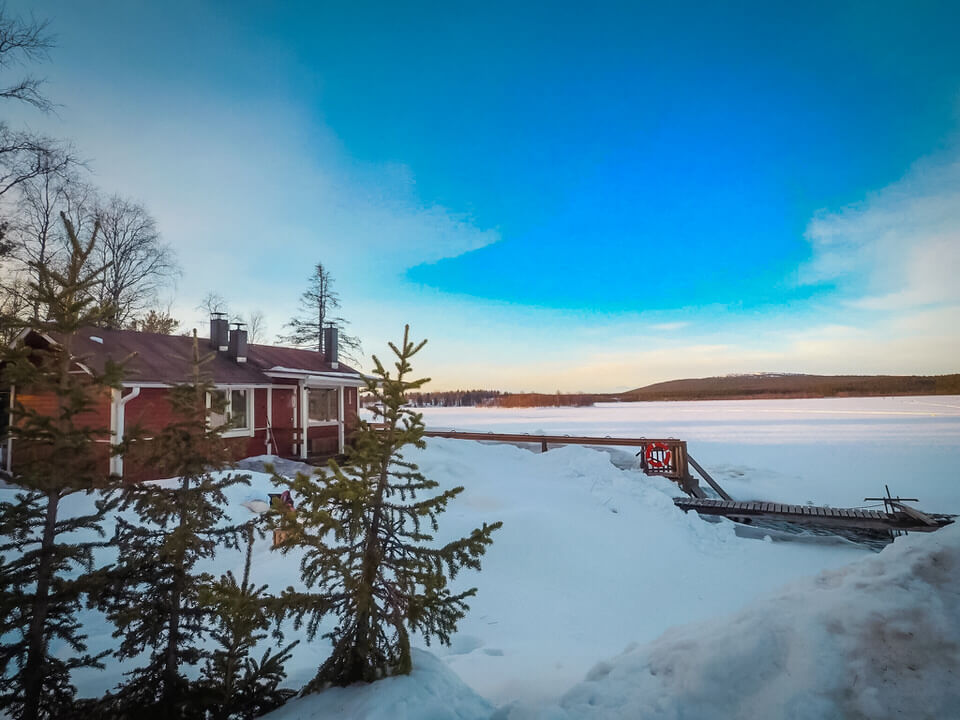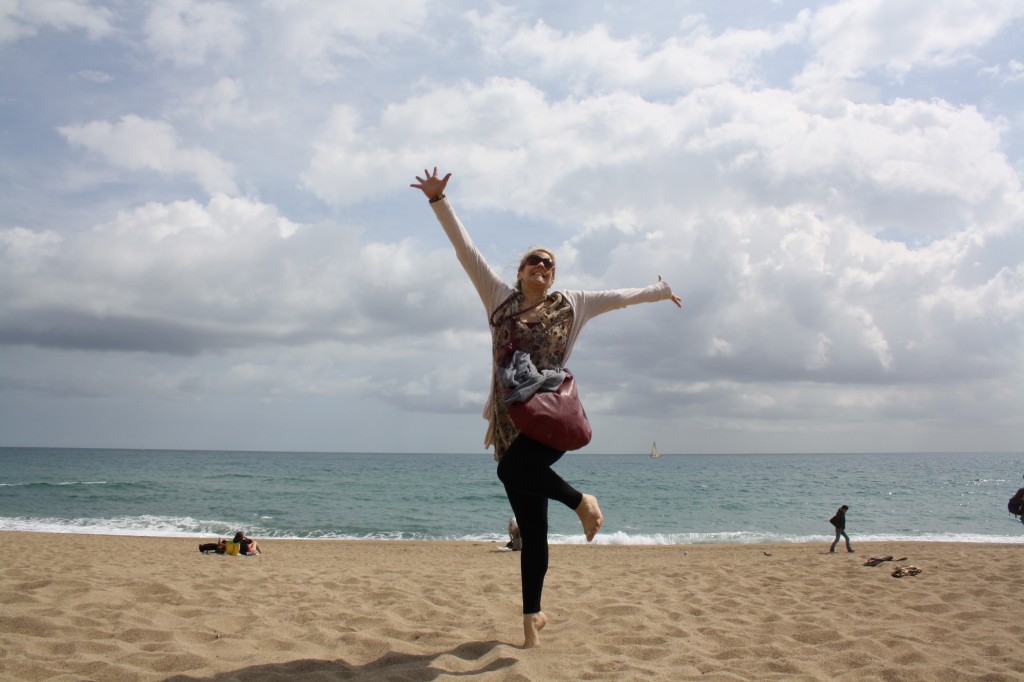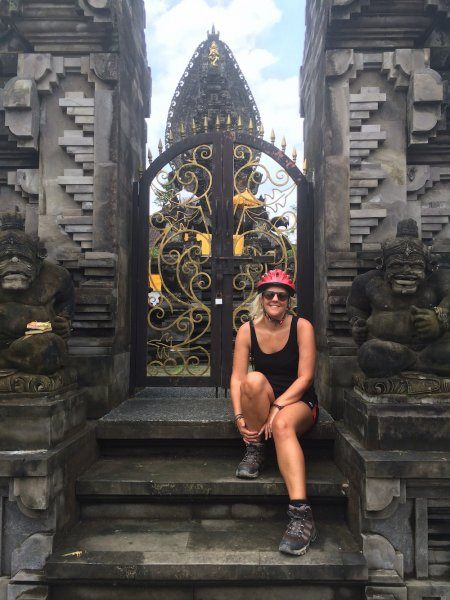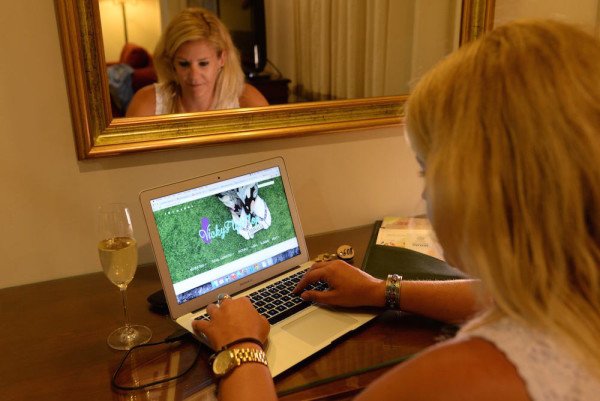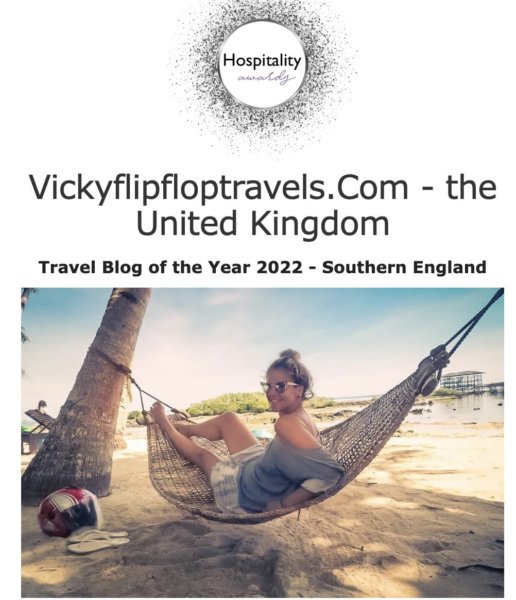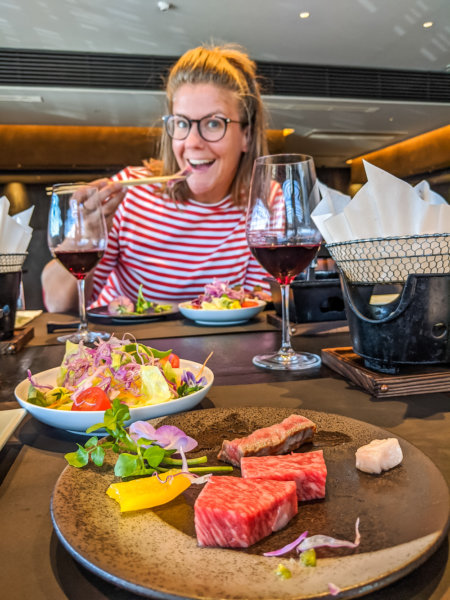Welcome
Hi, I’m Vicky…
I’m Vicky, a travel writer and adventurer, and the creator of vickyflipfloptravels.com. I’m a trained journalist, have been to over 75 countries, and have worked with some of the biggest travel brands in the world. I’ve been doing this for over 14 years now and have seen a lot change in the industry – what hasn’t changed though, is my love and passion for travel and blogging.
I’ve spoken on panels at huge trade fairs, festivals and universities and I’m often citied as one of the UK’s top travel bloggers. I’ve also written a book about festivals called Celebrate, and recently wrote the South East chapter for the Lonely Planet Experience England guide. I’m currently freelancing at Saga Magazine online to establish their travel hub.
Fun Facts About Me
I’d rather be
at a beach bar
Listening to
tropical house
grateful for
my life
Favorite place
Japan
my weekends
drinks & family
best FOOD
marmite on toast!
My Favourite article
My Favourite adventure
My Favorite Place to go
Where this all began
I grew up in a beautiful village in the middle of England until moving out at 18. Before this I hadn’t been far – a few holidays in France and a school trip to Turkey about covers it. And although I dipped my toe in the water with a holiday to Greece with friends the summer before university, it wasn’t until I worked on a kids camp in New York that I truly got bitten by the travel bug.
There followed an 8-week tour round Australia, a second year at a camp in Connecticut, partying in Mexico, sunbathing in Portugal, teaching English in Madrid, 4 months around Europe, a tour of Morocco, a safari through the Serengeti, skiing in Canada and a few weekend jaunts throughout my 20s.
Student loans and minimum wage jobs supported most of it. I worked on some top magazines (see my LinkedIn) before finding my calling as a travel writer.
I believe that with a bit of prioritising you can explore the world while holding down a full-time job, and without breaking the bank. I hope to inspire you to do the same!
what i want to achieve
My purpose…
I used to think I’d do something cool for charity, save the world somehow, in my own little way, but I’ve decided that if I inspire the right person to relax or push out of their comfort zones with my travel writing, then maybe, just maybe, they’ll be the ones to save the world instead, and I’m indirectly responsible.
You’ve got to work with what you’ve got in this life and I’ve got this blog, a passion and a desire to help you travel better.
Subscribe to my youtube channel
My life a travel blogger…
Since setting up my travel blog, in February 2012, I’ve travelled all over the world. I’ve been on over 50 press trips and had some of the most incredible money-can’t-buy experiences.
I also lived as a digital nomad for years, I travelled central America solo, spent five weeks in wintry Japan, ventured through Zambia, Zimbabwe and Malawi with my good friend Helen, travelled Nepal, cycled from north to south in Vietnam, went on a music odyssey through the USA and dipped into Europe more times than I can count. I’ve also visited off the beaten path places like Samoa and Papua New Guinea.
Future plans include travelling South America, as I’ve still NEVER been. And I also want to see more of the Middle East, and the wonderful islands of Europe too. Honestly, so many places I want to go.
My ‘to-see list’ is just never ending.
Awards and mentions

I’ve been featured in Wanderlust Magazine, YahooTravel, The Guardian, The Huffington Post, The Independent, The Daily Mail, The Daily Express and many other newspapers too.
READ MORE: Find out more about my work here.
What my blog is NOT
- Just another solo female traveller blog – I’d rather travel with friends, but I won’t let being a female be an obstacle or issue if I have to go it alone. In fact, I travelled the world solo for three years, and plan to travel solo again. Although, travel these days is usually with my young son – I’m not letting becoming a mother stop me!
- A revelation in how you can give up your life and travel nonstop forever and ever – I don’t want to do that either, but it suits me for now. I see this all over Instagram, ‘give up your travel, travel, be better than everyone else’ – that kinda vibe. That’s just not me. You do you. You can have a home life AND a trave life!
- Sanctimonious – I don’t think I can save the world, nor sort out the world’s problems with just a trip to a country. I’d rather inspire you to do that while I learn from a destination, enjoy and move on.
On vickyflipfloptravels.com you’ll find me having fun on my adventures and reporting back in the hope of giving you the confidence and knowledge to do the same. From weekend city breaks, to days out, to two-week itineraries for some of the most popular long-haul destinations – I’ll write about whatever takes my interest.
Sometimes I have a bit of money to splash, like on my Coachella road trip. Other times I’m on a strict budget, like when I spent two weeks in Vietnam on £300.
What I always want to get out of my travels though, is value and experience.
just so you know…
Disclosure
Sometimes I’ll include paid articles on this site, just like a magazine has advertorials and adverts to support the cashflow, so do I.
- If an article is a ‘guest post’ I will have been paid a sum to feature it. If I don’t earn money I don’t travel.
- Occasionally I’ll review a product I’ve been given for free.
- I do get discounts and free stays in hotels but I will always give you my honest review.
- Any links to Amazon and Booking.com are affiliate links and I’ll get a teeny tiny commission, don’t let it bother you.
Day Out in England
In January 2020, I set up a new site, Day Out in England – showing off the best of what glorious England has to offer. I was a finalist in the Travel Media Awards 2021 for my work on this site and it’s continued to grow with now over 200,000 monthly views.
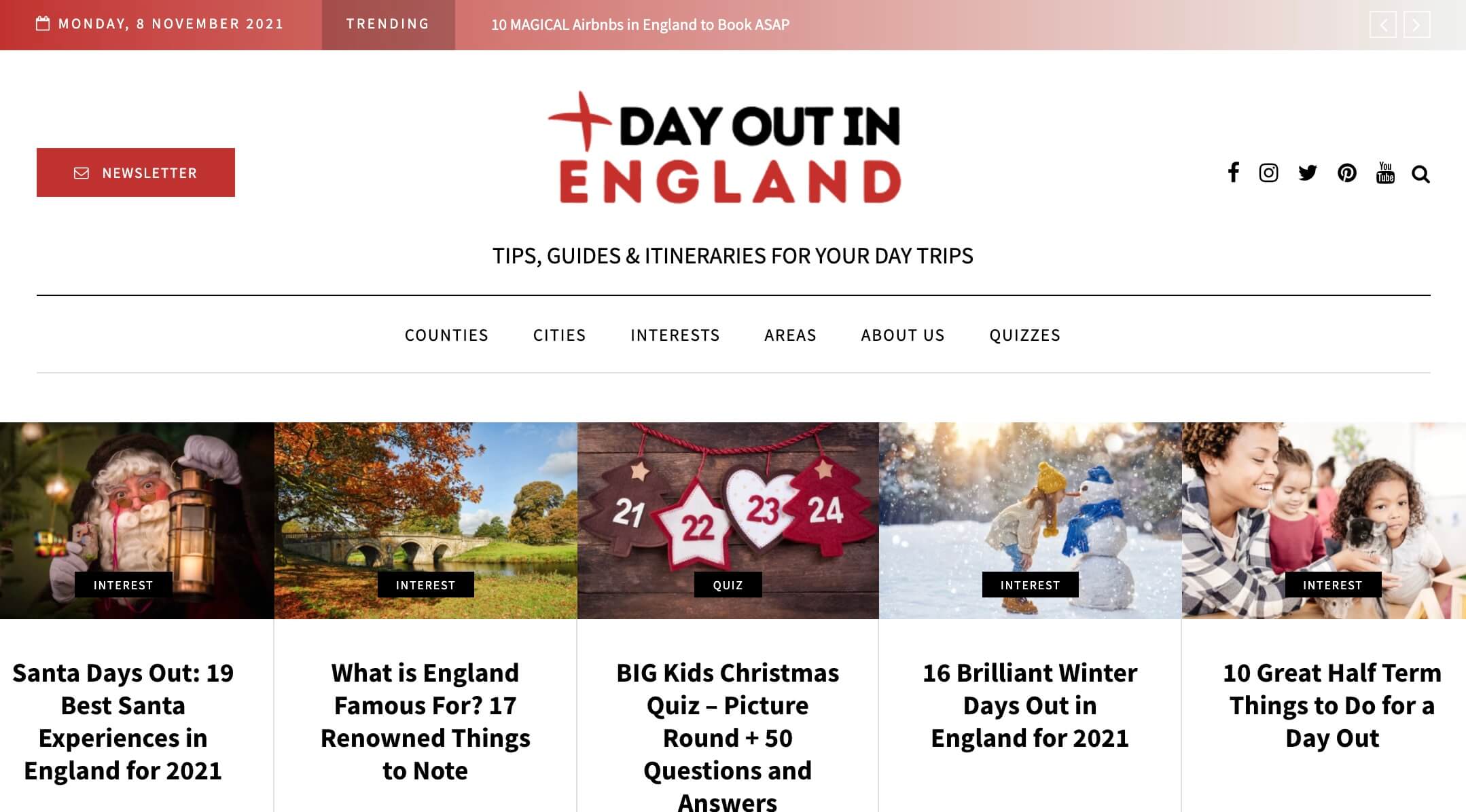
My blog, in short
- Having the life you knew and thought you were in for pulled out from under your feet doesn’t have to be a bad thing.
- Perspective and attitude are the key to happiness.
- If you want something, go for it with everything you have but don’t give up the day job until the time is right.
- Festivals are awesome and I want to see them all.
- There’s a huge world out there, channel that curiosity and tenacity and go explore!


